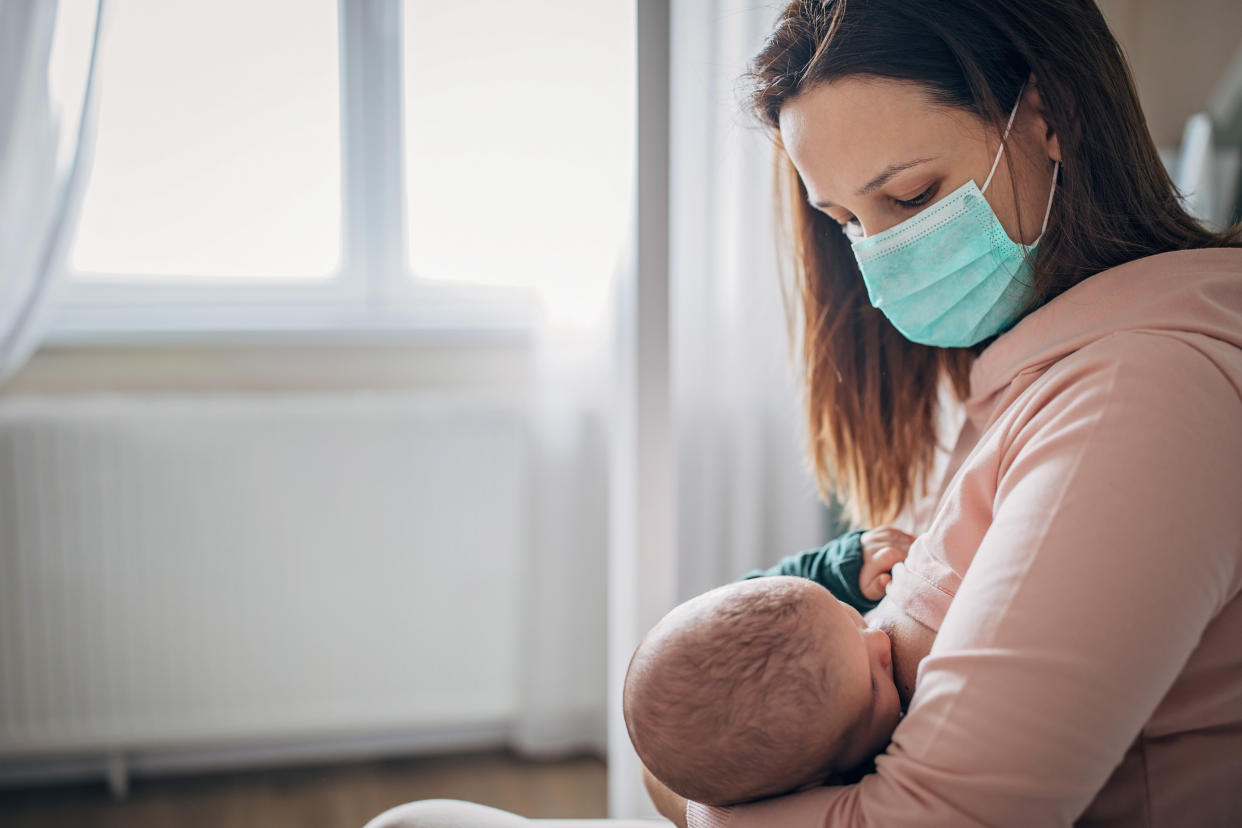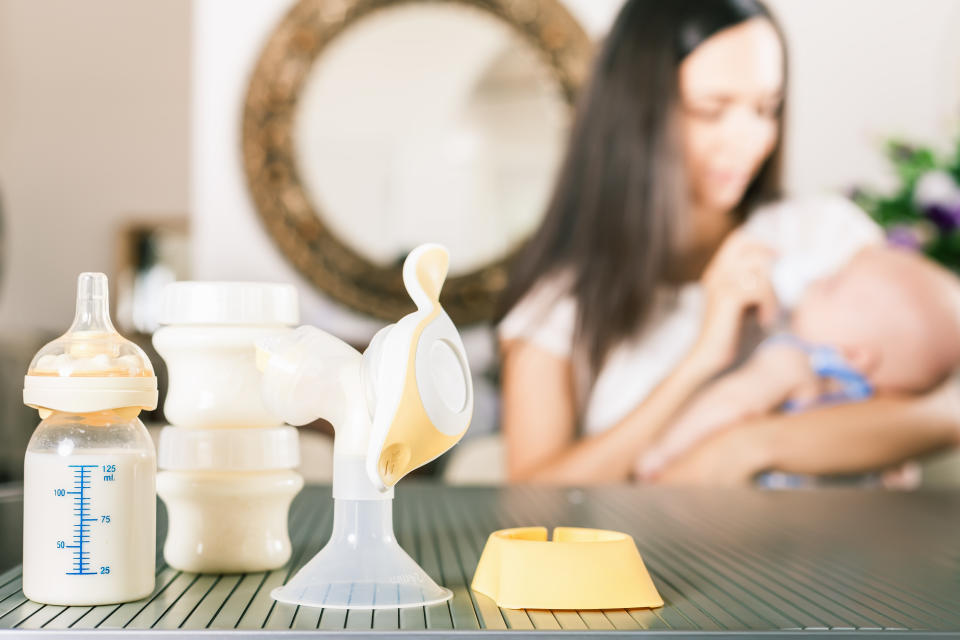How to breastfeed safely during the pandemic, according to doctors

Many pregnant women and new mothers undoubtedly feel anxious amid the coronavirus pandemic.
Cases have emerged of newborns testing positive for the infection, with it being unclear whether they caught the virus in the womb, birth canal or during skin-to-skin contact after birth.
While this may sound alarming, the vast majority of babies have made a full recovery, with there also being no evidence the coronavirus contributes to miscarriages or affects an unborn infant’s development.
Read more: What makes COVID-19 so dangerous for some?
For mothers who breastfeed, the NHS recommends they do so even if they test positive for the coronavirus. There is no evidence the infection spreads via breast milk, “so the benefits of breastfeeding and the protection it offers outweigh any risks”.
Despite this undoubtedly reassuring news, doctors from the University of Florida in Gainesville have put together some “best practices” for breastfeeding amid the pandemic.

With the coronavirus only being identified at the end of 2019, no one can say with total certainty the infection does not spread via breast milk, however, “it is unlikely based on what we do know”, the Florida doctors wrote in the journal JAMA Pediatrics.
Lactating women who have overcome the infection have even been found to produce antibodies – immune-fighting proteins – in their breast milk, which may help prevent the coronavirus taking hold in their baby.
Read more: Smokers quit but 'high-risk' drinking increased during lockdown
If a woman tests positive for the coronavirus and wants to breastfeed or express her milk, the doctors recommend she:
Washes her hands before and after touching her baby, or any pump or bottle parts
Avoids sharing a pump
Wears a mask or face covering while breastfeeding or pumping
Follows the manufacturer’s instructions for proper pump cleaning after each use, including all parts that come into contact with skin or breastmilk
If the women is pumping, the breast milk should ideally be administered by a healthy person without the coronavirus, who is not in a high-risk group and lives with the mother, added the doctors.
Watch: Can you catch coronavirus twice?
For women who work in high-risk settings, like hospitals, the doctors stressed employers should provide access to a private, non-bathroom space for her to pump her milk.
Regular hand washing and cleaning any pumping equipment is also important in this scenario.
As well as following the above advice issued for coronavirus-positive mothers, the doctors also recommend those who may have been exposed to the infection:
Take off their shoes, immediately wash work clothes and shower as soon as they get home
Talk with a supervisor about limiting high-risk situations at work. This may include regularly cleaning areas that are frequently touched
Read more: Coronavirus vaccine trials will not tell us if a jab saves lives
The doctors stressed breastfeeding women should be able to carry on with their normal job, providing social distancing, hand washing and other protective measures are in place.
Pumping mothers who could have been exposed to the coronavirus may wish to isolate from their newborn, with someone else administering the milk, if the infant is under two months old or has certain risk factors for infection complications.
These include being born premature, or having a heart defect, severe lung disease or serious immune problems.
“As we learn more about COVID-19 [the disease caused by the coronavirus] and breastfeeding, this advice may change,” wrote the doctors.
“For now, we know protecting breastfeeding and breast milk is best.”
The Breastfeeding Network has also provided guidance for new mothers amid the pandemic.
Watch: What is long COVID?




